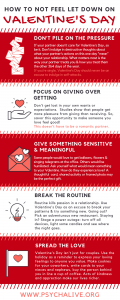Does An Early Marriage Equal An Early Divorce?

Divorce has been on my mind lately. Two couples very dear to me are contemplating it.
I got a divorce myself way back in 1965 when I was twenty-five years old because my husband had more fun going out with his high school buddies than being with me. I blame myself for even being in that situation. I was twenty-one years old when I met the guy. Three weeks later he proposed, and I stupidly said yes because I needed to escape from a particularly trying time in my life. Plus he looked like Marlon Brando’s more handsome brother. As I later found out, escape and good looks weren’t the answers. They only added on to my problems.
After I grew up a little, came to my senses, and got decent job, I decided I had a better chance of being happy without him than with him. So after less than four years of marriage, I divorced him. And I never looked back. I didn’t have to since we had no children or property together. Even though I became the black sheep in the eyes of my family, I never regretted taking that step.
Divorce at that time was almost unheard of – the divorce rate in 1965 was 2.3 percent while now it is 40 to 50 percent of first marriages. Then it was hard to get a divorce and a stigma was associated with it. Now it is easy – probably too easy. So easy that my former husband is now married to wife number five.
Of course in the years following my divorce, I witnessed the divorces of many of my friends and relatives. Even multiple divorces. I am no longer the black sheep. Five of my close family members followed in my footsteps. And while most of these divorces led to better situations, several did not. I’ve seen many single moms and dads juggle their work life while having to raise their children on their own.
I also know of one woman who left her husband for a woman – which, I understand, is becoming more and more prevalent. According to an article in O Magazine, “Statistics on how many women have traded boyfriends and husbands for girlfriends are hard to come by.” But, experts like Binnie Klein, a Connecticut-based psychotherapist and lecturer in Yale’s department of psychiatry, says a half-dozen of her married female patients in the past few years have fallen in love with women. “Most are afraid that if they don’t go for it, they’ll end up with regrets,” she says.
Although my story has a happy ending – I’ve just celebrated anniversary number forty-two with my second husband – I worry about my friends. Children are involved in both cases. One couple has a two year old; the wife in the other has two children from her former marriage and has withstood a bitter and difficult divorce once before. I have always said: if I had had a child with my first husband, I wouldn’t have been so quick to leave him. Even now couples with children are less likely to divorce than childless couples.
What’s different? People got married younger in my day – right out of high school or college. They went directly from living with their parents or in a college dorm room to an apartment with a spouse. And like my husband says, since he also married at age twenty-one, he never had time to sow any wild oats. He left his first marriage of nine years to do that, and luckily I came along after his sowing period was over. We were both over thirty when we married, each of us embarking on a second marriage at an age when many couples marry for the first time now. Our son and his wife were both thirty-six when they got married two years ago. Neither of them has to look back and have regrets about what they might have missed in their single lives.
Statistics say that couples marry later now and therefore are more mature and stable. They have children later, and what’s most surprising to this seventy-year old, fewer couples are getting married. Staying single until later in life or not marrying at all is more acceptable than it was when I was a young woman.
While not marrying at all might be a drastic way to bring down the divorce rate, I definitely think marrying later in life is the key to having a long and healthy married life.










when the date for this post?